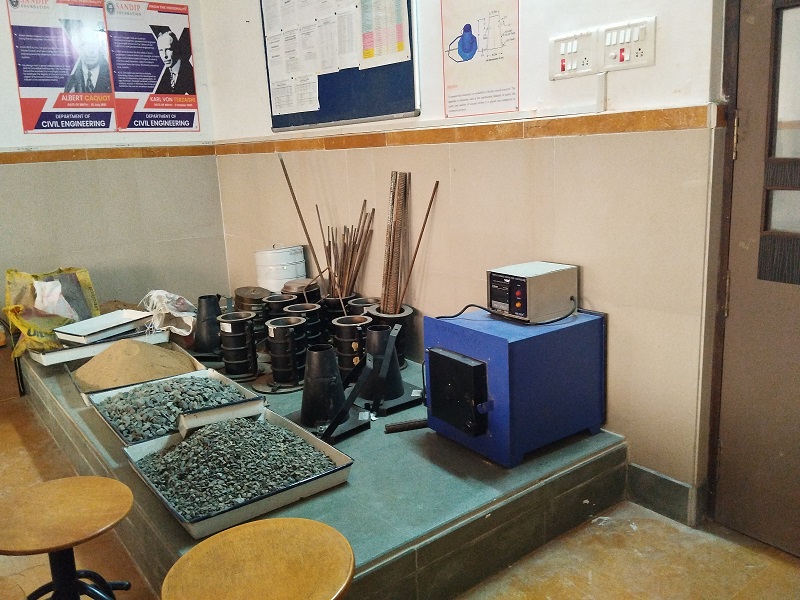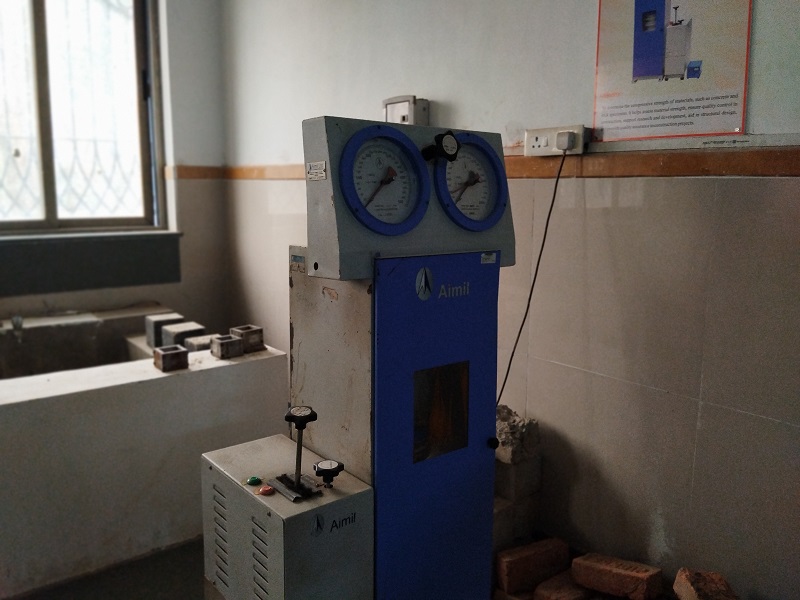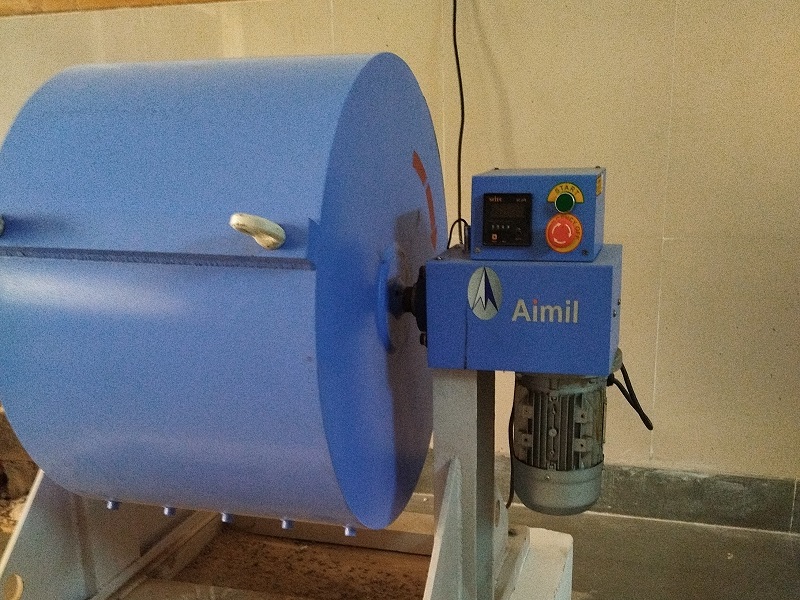
Apply Now
About M.Tech Construction Technology and Management
Salient Features
Infrastructural Facilities
- State-of-the-art infrastructure for skill development
- Innovative curriculum aligned with the UGC and AICTE-CBC
- Highly trained and qualified faculty
- Ultra-modern classrooms with audio-visual aids
- Fully-equipped labs with latest technologies
- Departmental library with latest reading material
- Computer training with software like PSCAD, MATLAB, PLC & SCADA, and ETAP
- Comfortable and modern hostel facilities
International Networks
- Signed MoUs with top international universities and industry leaders
- Facilitating student and faculty exchange programs with international partners
- Organising guest lectures, workshops, seminars, etc. with international partners
- Facilitating international internship and placement opportunities for students
- Engaging in joint research programs for enhanced student development
Innovative and Creative Curriculum
- Curriculum is designed to maintain a balance between technical skill and practical knowledge
- Lab-work is a must and forms a major chunk of the training program
- Research-based training and learning programs
- Value addition and global certifications are a part of the curriculum
- Curriculum is upgraded annually after consultation with various industry leaders
Vision
- To establish an outstanding Centre of regional and national reputation for providing a quality based education to the Civil Engineering students.
Mission
- M1:To serve students by providing a broad and high quality education for a successful professional career.
- M2:To conduct strong basic and applied research for national needs.
- M3:To serve the construction industry; civil engineering profession and rural community through dissemination of knowledge and technical services.
Program Educational Objective (PEOs)
| PEO1 | : To train the students so that they can work and contribute to the infrastructure development projects being undertaken by government, private or any other sector companies. |
| PEO2 | To train students in such as a way that they can pursue higher studies so that they can contribute to the teaching profession/ research and development of civil engineering and other allied fields. |
| PEO3 | To train students in a manner that they should function effectively in the multicultural and multidisciplinary groups for the sustainable development and growth of civil engineering projects and profession. |
Programme Outcome (POs)
| PO1 | Engineering knowledge: Apply the knowledge of mathematics, science, engineering fundamentals, and an engineering specialization to the solution of complex engineering problems. |
| PO2 | Problem analysis: Identify, formulate, review research literature, and analyze complex engineering problems reaching substantiated conclusions using first principles of mathematics, natural sciences, and engineering sciences. |
| PO3 | Design/development of solutions: Design solutions for complex engineering problems and design system components or processes that meet the specified needs with appropriate consideration for the public health and safety, and the cultural, societal, and environmental considerations. |
| PO4 | Conduct investigations of complex problems: Use research-based knowledge and research methods including design of experiments, analysis and interpretation of data, and synthesis of the information to provide valid conclusions. |
| PO5 | Modern tool usage: Create, select, and apply appropriate techniques, resources, and modern engineering and IT tools including prediction and modeling to complex engineering activities with an understanding of the limitations. |
| PO6 | The engineer and society: Apply reasoning informed by the contextual knowledge to assess societal, health, safety, legal and cultural issues and the consequent responsibilities relevant to the professional engineering practice. |
| PO7 | Environment and sustainability: Understand the impact of the professional engineering solutions in societal and environmental contexts, and demonstrate the knowledge of, and need for sustainable development. |
| PO8 | Ethics: Apply ethical principles and commit to professional ethics and responsibilities and norms of the engineering practice. |
| PO9 | Individual and team work: Function effectively as an individual, and as a member or leader in diverse teams, and in multidisciplinary settings. |
| PO10 | Communication: Communicate effectively on complex engineering activities with the engineering community and with society at large, such as, being able to comprehend and write effective reports and design documentation, make effective presentations, and give and receive clear instructions. |
| PO11 | Project management and finance: Demonstrate knowledge and understanding of the engineering and management principles and apply these to one’s own work, as a member and leader in a team, to manage projects and in multidisciplinary environments. |
| PO12 | Life-long learning: Recognize the need for, and have the preparation and ability to engage in independent and life-long learning in the broadest context of technological change. |
Programme Specific Outcome (PSO)
| PSO1 | PSO1. Ability to analyze and design physical systems, components, and process by meeting the constraints such as safety, public health and environment. |
| PSO2 | PSO2. To work professionally in construction, design by using modern engineering tools and solve civil engineering problems. |
Career Opportunities in Construction Technology and Management

Construction Technology Engineer
Construction technology engineers are tasked with designing and developing buildings that stand the test of time against natural and man-made disasters.

Structural Designer
Structural designers take the assistance of construction technologies to design sturdy and functional structures as per the requirement of the clients.

Construction Inspector
Construction inspectors are tasked with auditing construction sites, ensuring that proper governmental regulations are being followed, and maintaining a safe construction site for workers.

Planning Engineer
A planning engineer is involved in deciding and preparing sustainable economic budgeting models to ensure that a project is conducted and completed within the allotted funds.
Fee Structure & Eligibility
| Programme | Sem | Year | Mode | Eligibility | Academic Fees Per Year (INR) |
|---|---|---|---|---|---|
| M.Tech Civil(Construction Technology and Management) | 4 | 2 | Sem | Bachelor’s degree or its equivalent in a relevant field from a UGC-recognised college with minimum 50% aggregate marks in the qualifying examination. | Rs. 62,000/- |
Note:
- Forms and Prospectus: ₹500 /- (One Time)
- Hostel Security Deposit: ₹5000 /- (One Time)
- Hostel Fees: ₹75,000 /- (Per Year)
- Uniform Cost: ₹5,500/- (At the Time of Admission)
- Convocation and Certificate : ₹3,000 /-(Final Year)
- University Caution Money: ₹3,000 /- (Refundable)
- Hostel Rooms Allotment at the discretion of the Hostel Supervisor
- Hostel rooms are with bunk bed only
- Registration fees for Diploma & B.Sc. Agriculture: ₹3500/-
- For all other Courses: ₹2500/-
- If any student wants accomodation in B1 Hostel, they have to pay ₹10,000/- extra per year, allotment based on availability of the Hostel room.














